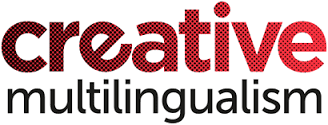School’s out for summer and you may be wondering what to do with yourself over the holiday. If you’re looking for ways to broaden your intellectual horizons one great resource is Oxplore, a digital learning experience created by Oxford University for students aged 11-18. Oxplore encourages you to consider ‘Big Questions’, for example, ‘Should you believe the history books?’ or ‘Would you want to live forever?’ The questions explored draw on several subjects and aim to engage with ideas in a way that goes beyond what you’ll cover in the classroom.
One particular question explored, which throws a spotlight on Modern Languages, is ‘Would it be better if we all spoke the same language?’ You can check out this question on the Being Human strand of the website. The exploration of this question included a discussion with Prof. Katrin Kohl and Dr Marianna Bolognesi, researchers on the Creative Multilingualism Project. This discussion, where Katrin and Marianna answer some questions submitted by viewers, is available to view below.
With such a rich topic, it was inevitable that there would be more questions than it was possible to answer during the livestreamed discussion. Therefore, Katrin and Marianna also took the time to answer some of the questions they didn’t cover on the Creative Miultilingualism blog. Click here to see some of their answers.



